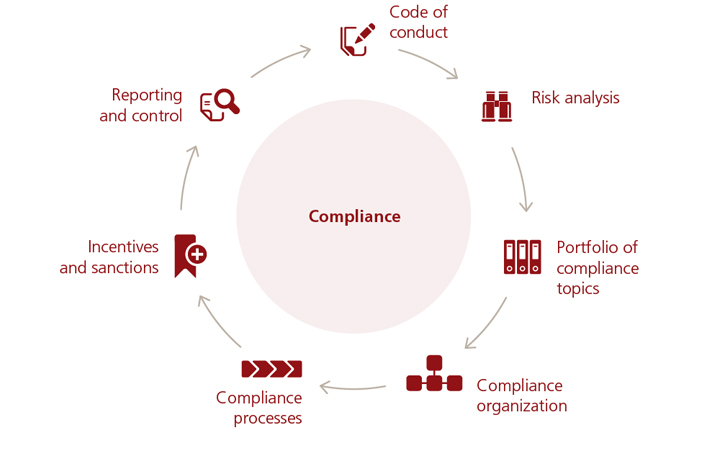In any democratic society, adherence to legislative compliance is crucial for a smooth and efficient functioning of the government. Democracy thrives on the idea of complementarity among the three arms of government for effective delivery of good governance.
This article explores the importance of legislative compliance by the executive arm of government and its impact on governance, accountability, and the overall well-being of the society.
In Nigeria, like in other democracies, while the legislature makes laws, the executive is responsible for implementing them. The flouting of those laws and policies attracts punishments pronounced by the judiciary. By implication, the three arms are expected to work in complimentary roles to stabilize the society.for the good of all.
However, if the legislature makes laws and the executive refuses to play a pivotal role in ensuring that those laws are followed and enforced, the outcome will be a society of anarchy. That was the concern that recently made the chairman of the National Assembly and Senate President, Senator Godswill Akpabio, to urge the executive to be more responsive to legislative issues.
Akpabio’s message was not an indictment of the entire executive arm, but a clarion call to those wont to be sluggish and less concerned about the general issue of governance. It was a subtle warning to those who believe in “business as usual” approach, not minding if the “usual” lacks a utilitarian flavour.
As he decried the attitude of some heads of Ministries, Departments and Agencies (MDAs), often in the habit of snubbing the summons of the Committees of the National Assembly as well as the laws and resolutions of the legislature, Akpabio signalled his commitment to help change the narrative of governance for the better.
As said earlier, legislative compliance, particularly in implementation by the executive, guarantees governance and rule of law. Clearly, when the laws enacted by the legislature are effectively implemented, they provide a framework for governance and stability. By adhering to legislative requirements, the executive arm helps maintain order and justice within the society, fostering an environment where citizens can trust in the fairness and impartiality of government actions.
Moreover, complying with legislative outputs promote accountability and transparency. It has been argued by political experts that when the government complies with legislation, it becomes easier for the citizens and relevant oversight bodies to monitor and evaluate the actions of the executive. This accountability fosters a sense of trust and confidence in the government’s ability to act in the best interests of the people. By complying with legislative requirements, the executive arm demonstrates its commitment to transparency, allowing citizens to have a clear understanding of government decisions and policies.
Also, legislative compliance by the executive arm also helps in curbing corruption and preventing abuse of power. This is where the principle of Seperations of Power becomes relevant in a democracy. When the executive follows the laws and regulations set by the legislative branch, it reduces the chances of unauthorized actions that may harm the public interest or violate individual rights.
It does appear that Akpabio did not only have his eyes on transparency and accountability, but also on justice and protection of human rights. For Plato, justice consists in everyone doing his due. He does not see justice as mere strength, but a harmonious one. Justice is not the right of the stronger but the effective harmony of the whole. All moral conceptions revolve about the good of the whole – individual as well as social. Applying this to Akpabio’s appeal to the executive for legislative compliance, it is clear that he aimed at ensuring a harmonious government for the benefit of the masses.
It is in a society, as aforepictured, that protection of human rights and justice can be effectively ensured. It is common expectation that laws enacted by the legislature often aim to protect individual liberties,and promote equity and social justice. The manifestation of the above expectations becomes easy when the executive complies with the laws, thus contributing to the protection of human rights and equitable treatment of all. On the reverse, non-compliance can lead to violations of constitutional rights, making the executive arm accountable for any potential harm caused by disregarding legislation.
There is also the issue of effective policy implementation. Policies and programs designed to meet societal needs cannot be effective, if they are not executed in accordance with the law. By understanding and adhering to legislative outputs, the executive arm can ensure that policies are implemented effectively, efficiently, and in a manner consistent with the intended goals. Compliance allows for meticulous planning, proper allocation of resources, and overall enhanced policy outcomes.
Legislative compliance by the executive arm of government is of paramount importance for the successful functioning of a democratic society. It promotes governance, accountability, transparency, and the protection of human rights. By adhering to legislative requirements, the executive arm ensures the effective implementation of policies, leading to favorable outcomes for the society as a whole. Consequently, fostering a culture of legislative compliance within the executive arm is vital for maintaining the rule of law and ensuring a just and fair society.
In summary, legislative compliance is crucial for the successful functioning of a democratic society. It upholds the rule of law, promotes accountability and transparency, prevents corruption, and ensures the protection of human rights. By adhering to legislative requirements, the executive arm plays a vital role in maintaining a just and fair society for its citizens.
